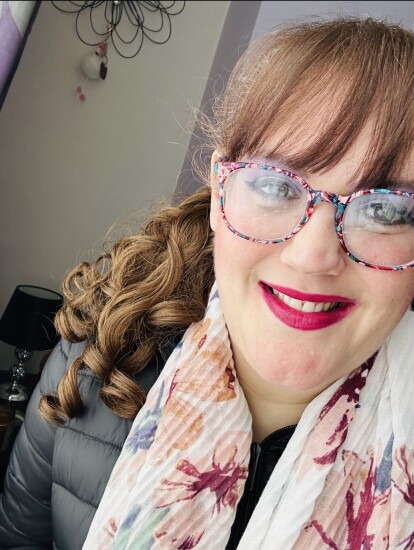10th September 2023 by Jack Allan

I was initially diagnosed with primary breast cancer in May 2020, one day after my 35th birthday. I’d noticed an inverted nipple/dimpling in my breast and arranged a GP appointment. As the lockdown had slightly eased, I was able to see my family again for my birthday. I shared this discovery with them and my Mum recommended seeking a private consultation.
I booked a private appointment and was able to be seen the next day. I then had an ultrasound on the Thursday and a biopsy organised by the following Tuesday.
I was told that it was only primary, and all seemed very curable.
Before deciding on my exact chemotherapy treatment, they did a bone and CT scan and found a clot in my lung. It was then that I was told that it had spread to my bones as well.
The phrasing used was that all I could be given was palliative care. I was handed the appropriate medication and sent away for four weeks to process. There simply was not enough help or advice given to me and I felt lost.
After my diagnosis I looked online and everything I found was only available for US or UK mainland, rather than in Ireland. I searched McMillan forums and found positive stories and outlooks which encouraged me to think that there were people living positively with SBC. I have never asked for a prognosis or timing during any of this as I just don’t want to know.
I was an Opps Manager at a hotel running weddings when I was diagnosed and, due to Covid, I was given a year off on furlough. I had an understanding boss which made a huge difference. I realised at the end of that year that I could no longer fulfil that role, so I initially returned as part-time receptionist and I am now not working at all.
I am on oral chemotherapy, which I find has been more manageable for me. Fatigue is a big factor in all of this, as well as weight gain and joint pain.
I also have a health coach who has really helped me both physically and mentally. She guides me with reiki, meditation, and mindfulness as well as alternative therapies such as hyperbaric oxygen therapy and supplements.
All of this has helped with the mental side of things and my mindset and I now consider secondary breast cancer the same way I view my sister’s diabetes – a chronic illness.
It was very difficult. Phone counselling was the only option available, and I had to seek out my own information and health coach. The waiting lists were long, I was given lots of data but was not able to either process it or understand it.
I found Make 2nds Count via Facebook – initially, I met the Northern Ireland group in October 2021. To start with, I had only met other patients with primary breast cancer in NI for the first full year, so it was amazing to meet others with secondaries.
I went to their Christmas dinner event; I am usually a very shy person, but I pushed myself to go alone. It was great to meet people I didn’t have to explain my situation to, who have understanding and hear other stories/journeys. We all had lots in common with our experiences with the NHS and local health service issues.
Make 2nds Count has totally changed my life – I cannot state this enough. I have been to nearly every single meet-up bar just a few. I have made three very close friends from the group whom I see weekly, we work out together, and go to events and tribute nights. We even did a day trip to celebrate one year of the group. A highlight moment was going along to the Seen to be Heard exhibition. This charity has helped me find best friends who just get it, whom I can talk about the blunt negatives with without judgement that perhaps I wouldn’t want family members to hear.
To say f**k it, make the memories, prioritise the little things, and push past my fears.
It’s liveable – you’ve absolutely got this. Much of what you hear at the start is hospital jargon so don’t be scared of that. Find your community – there are lots of us out there to be around you and support you.